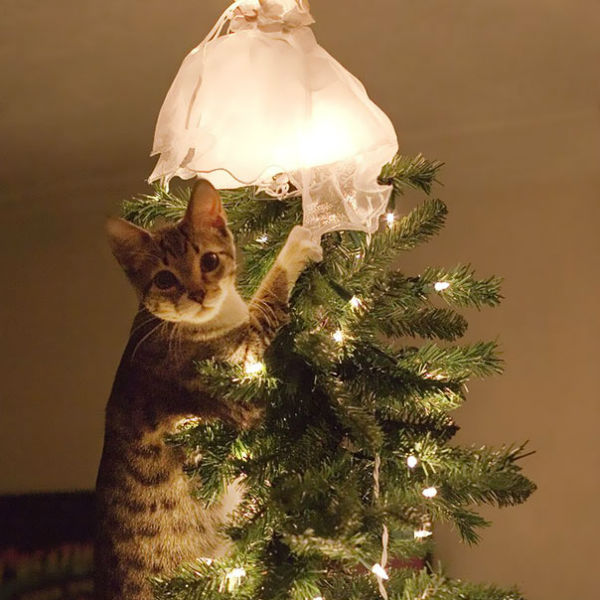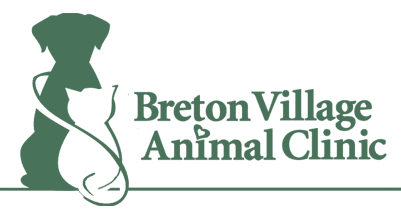
Holiday Dangers for Your Cat
Christmas time can be a very exciting time for people and cats alike. After all, we put actual trees in the
house, cover them with things that move and roll if knocked down, put a new fancy blanket that is devoid
of cat hair under it and then circle it with stringy, shiny stuff. Christmas is a fantastically fun time if you are a cat.
Unfortunately, many of the things that people love about Christmas can be potentially dangerous to cats.
The trees themselves are generally not overly toxic to them nor is the tree water if they drink it (as long as
there are no additives in it), but either could cause mild gastrointestinal upset. Getting pine sap on them
will lead to ingestion when grooming which can also cause GI upset. If your cat gets pine sap on it, try to
remove it with a bit of dawn dish soap and a comb. You can also cut the hair with the sap in it as long as it isn’t close to the skin.
Lights, ornaments and tinsel oh my!! Lights are on strands and can be very tempting for your cat to chew
on. Electric shock, electrical burns to tongue and lips and even electrocution can occur if they bite
through the cords. Keep lights wrapped into the tree to avoid easy access and pulling them off.
Ornaments can be swallowed, broken, chewed on and some can even be toxic. Small ornaments that
might seem appealing to your cat should be kept towards the top of the tree. Try to keep glass or fragile
things out of their reach as well. Most cats won’t eat broken glass but they can get glass slivers or cuts.
Some homemade ornaments are made from a high salt base substance. If animals ingest these they can get
salt toxicity so keep these away from the lower levels as well. Tinsel, garland and ice cicles are common
things that cats eat and then need emergency surgery to remove. Cats are drawn to eating linear (string
like) things. The texture of the tinsel, the sound of it when they chew on it, the string it is on...all
wonderfully interesting to a cat. Many cats eat it and part of it gets stuck within the stomach while the rest
of it tries to pass through intestines. This creates an obstruction that can perforate the intestines. The
obstruction is life threatening. Emergency surgery is needed in these situations.
Poinsettia plants can be toxic to cats as well. They generally cause gastrointestinal signs like vomiting,
diarrhea, and not eating but in large quantities could affect other things. It is best to avoid having real
poinsettia plants in the home if you have cats. Sometimes lilies are used in Christmas arrangements as
well, however they are extremely toxic to cats. Ingesting even some of the pollen that gets on their fur can be deadly.
As cat owners, we can still have our trees and our lights and our ornaments but we should take
precautions to help our cats not make poor decisions regarding them. There is a reason that the saying
“curiosity killed the cat” came to be...they just can’t help themselves! Best wishes for a fun and safe
holiday season!



